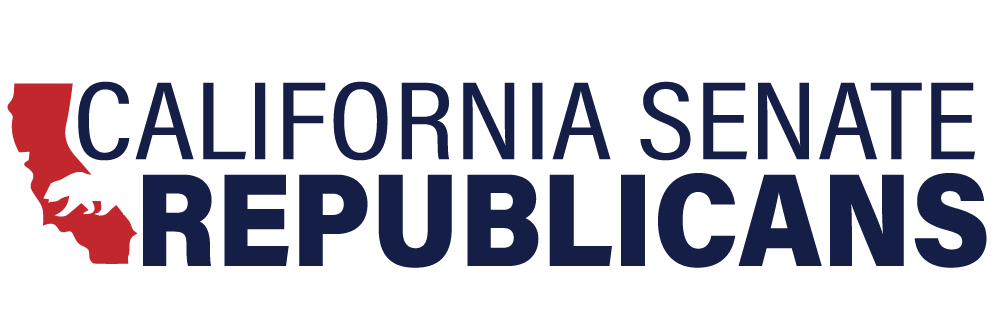Subcommittee #1 (Education) Laird (D-Santa Cruz) Chair, Ochoa Bogh (R-Yucaipa), and Pérez (D-Pasadena)
Subcommittee 1 did not meet this week.
Subcommittee #2 (Resources, Environmental Protection, and Energy) Allen (D-Santa Monica) Chair, Choi (R-Irvine), Blakespear (D-Encinitas), and McNerney (D- Pleasanton)
Senator Choi Questions CARB Spending, Calls for Balanced Climate Strategy. At Thursday’s budget subcommittee hearing, Senator Steven Choi (R-Irvine) raised concerns over major funding requests from the California Air Resources Board (CARB). Proposals included expanded Cap-and-Trade spending and increased fee authority, but were submitted with limited detail on implementation or expected outcomes.
“Lowering emissions is a worthwhile cause—everyone should care about the planet,” Choi said. “But in California, we too often let the perfect get in the way of the good.”
Choi questioned the cost-effectiveness of policies like the state’s push toward zero-emission vehicles, arguing that high program costs can outweigh benefits to taxpayers. He pointed to more cost-efficient strategies such as forest management and community hardening—tools that are often overlooked, despite their effectiveness in reducing the state’s carbon emissions and public safety value.
Citing an October 2022 study published in the journal Environmental Pollution, Choi noted that California’s 2020 wildfire season released nearly twice the greenhouse gas emissions as all state emission reductions since 2003 combined—effectively wiping out two decades of state efforts.
With the state targeting carbon neutrality and a ban on new gas-powered vehicles by 2035, Choi called for a more balanced approach to climate policy. “When the state picks winners and losers, we risk missing practical solutions that better serve both the environment and Californians,” he said.
Subcommittee #3 (Health and Human Services) Weber Pierson (D-San Diego) Chair, Grove (R-Bakersfield), Menjivar (D-San Fernando Valley)
Governor Set to Penalize Hospitals over Arbitrary Spending Caps. The subcommittee heard from hospital representatives sounding the alarm that the Governor, through the misnamed Office of Health Care Affordability (OHCA), seems determined to penalize hospitals over arbitrary spending caps created seemingly out of thin air. OHCA’s eight-member board, composed completely of Democratic appointees, recently voted to impose a 3.5 percent cap on expenditure growth for every hospital in California. Seven so-called “high-cost” hospitals are hit with an even tighter 1.8 percent growth cap. These percentages were chosen by the OHCA board with minimal analysis, and they fail to recognize the state’s estimated 5.1 percent inflation rate.
In 2026, OHCA will begin to issue penalties on hospitals that spend more than these caps, resulting in hospital cutbacks that will impair health care access for all Californians. Senator Shannon Grove (R-Bakersfield) said that this will “devastate hospitals,” many of which are already at risk of closure, and she challenged the logic of levying penalties when “bills from the Legislature” require hospitals to spend more on labor, seismic retrofits, security, and other mandates. Hospitals are urging the Legislature to intervene in stopping these penalties. The subcommittee did not act today, but Senate Republicans urge amendments to these senselessly punitive caps before enactment of the budget in June.
Subcommittee #4 (State Administration and General Government) Cabaldon (D-Yolo) Chair, Niello (R-Fair Oaks), and Smallwood-Cuevas (D-Los Angeles)
Senator Niello Questions Climate Spending Effectiveness, Urges Focus on Mitigation. During Thursday’s budget hearing on Governor Newsom’s proposed allocation of funds from the recently passed climate bond (Proposition 4), Senator Roger Niello (R-Fair Oaks) raised concerns about the limited global impact of California’s climate spending, despite significant costs to consumers and the state.
“For all the resources we dedicate to reducing greenhouse gas emissions—higher fuel prices, rising utility bills, and billions in state spending—the actual effect on global climate change is negligible,” Niello said. “California has made progress in lowering its own emissions, but that progress has had no measurable impact on atmospheric concentrations of greenhouse gases.”
Niello noted that California contributes less than one percent of global emissions, while countries like China—largely through coal-fired power—emit far more than the rest of the world combined. “When I raise this concern, I’m often told we need to lead by example,” he said. “But if we’re leading, we should ask: who’s following? The rearview mirror is empty.” While supportive of responsible climate policy, Niello urged a more balanced approach. “We’re not seeing results that match the scale of our investments. It’s time to place greater emphasis on mitigation—preparing communities for the impacts we can’t prevent.” He concluded by calling for more transparency. “Most people don’t realize they’re paying more at the pump and on their utility bills for policies that, globally, have little impact. That disconnect is deeply frustrating.”
Subcommittee #5 (Corrections, Public Safety, Judiciary, Labor, and Transportation) Richardson (D- San Pedro) Chair, Seyarto (R-Murrieta), Wahab (D-Hayward), and Durazo (D-Los Angeles)
Subcommittee 5 did not meet this week.
